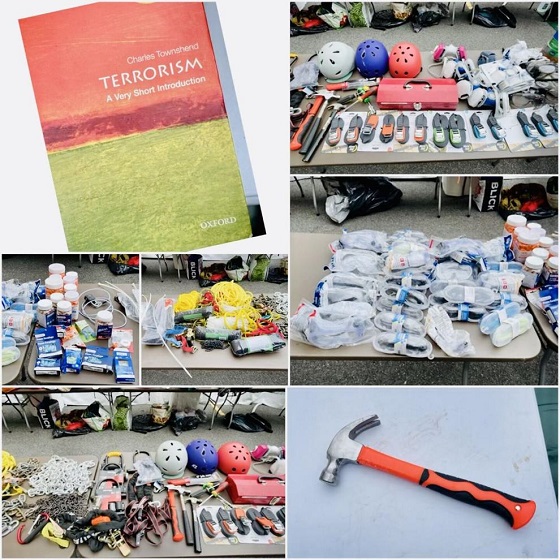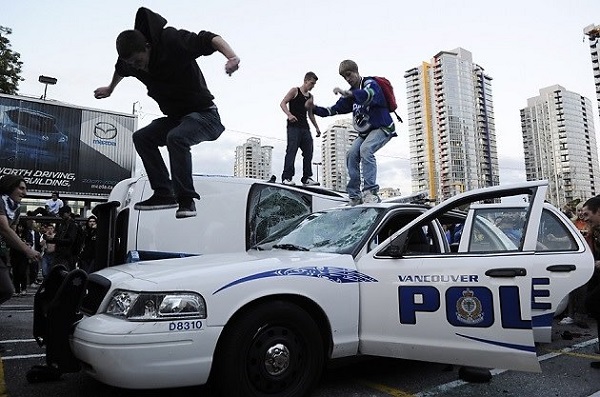Opinion
Judge Andrew P. Napolitano: Can Congress Ban TikTok?

From Heartland Daily News
“Congress shall make no law … abridging the freedom of speech.”
–First Amendment to the U.S. Constitution
When James Madison set about to draft the Bill of Rights — the first 10 amendments to the U.S. Constitution — he was articulating what lawyers and philosophers and judges call “negative rights.” A positive right grants a privilege, like a driver’s license. A negative right restrains the government from interfering with a preexisting right. In order to emphasize his view that the freedom of speech preexisted the government, Madison insisted that the word “the” precede “freedom of speech” in the First Amendment.
If the freedom of speech preceded the government, where did it come from?
Speech is a natural right; it comes from our humanity. The framers of the Constitution and the ratifiers of the Bill of Rights understood and recognized this. Congress doesn’t grant the freedom of speech; rather it is prohibited absolutely from interfering with it. In the years following the ratification of the 14th Amendment, the courts began applying the restrictions in the First Amendment to the states and their municipalities and subdivisions.
Today, the First Amendment bars all government — federal, state and local — and all branches of government — legislative, executive and judicial — from interfering with the freedom of speech.
You’d never know this listening to Congress today. The same Congress that can’t balance a budget or count the number of foreign military bases the feds own, that thinks it can right any wrong and tax any event, that has borrowed over $34 trillion and not paid back any of it; the same Congress now wants to give the President of the United States — whomever might occupy that office — the lawful power to suppress websites he thinks are spying on their users or permitting foreign governments to influence what folks see on the sites. All this is an effort to ban the popular website for young folks called TikTok and force its owners to sell its assets.
Here is the backstory.
Throughout American history, we have suffered from mass fears. In the 1790s, it was fear of the French and of Native Americans. In the 1860s, it was fear of African Americans and fear of Confederates. In the 1900s, it was fear of anarchists, Nazis and Communists. In the first quarter of the present century, the government has whipped up fear of terrorists, Russians, Saddam Hussein, Vladimir Putin and now the Chinese.
In his dystopian novel, “1984,” George Orwell analyzed the totalitarian mind and recognized the need that totalitarians have for fear and hatred. They know that when folks are afraid, they will bargain away the reality of liberty for the illusion of safety. Without fear and hatred, totalitarians have fewer tools for control of the population.
What is the government’s problem with TikTok? The feds want to use fear and hatred of the Chinese government in order to regulate the sources of data and information that Americans can consult. They have projected upon the government of China the very same unlawful and unconstitutional assaults on natural rights that the feds themselves perpetrate upon us.
Thus, in order to gain control over the American public, the deep state — the parts of the government that do not change, no matter which political party is in power — and its friends in Congress have advanced the myth that the Chinese government, which commands the loyalty of the owners of TikTok, might use the site to pass along misinformation or to spy on its users. The key word here is “might,” as the intelligence officials who testified to Congress on this were unable to produce any solid evidence — just fear — that the Chinese government is doing this.
You can’t make this up.
Remember the bumper stickers from the 1970s: “Don’t steal. The government hates competition!” I thought of that line when analyzing this. Why? Because the federal government itself spies on every American who uses a computer or mobile device. The federal government itself captures every keystroke touched on every device in the U.S. The federal government itself captures all data transmitted into, out of and within the U.S. on fiber-optic cables. And the federal government itself told the Supreme Court earlier this week that it needs to be able to influence what data is available on websites in order to combat misinformation.
The federal government basically told the court that it — and not individual persons — should decide what we can read and from what sources. What the federal government did not reveal is its rapacious desire to control the free market in ideas.
Now back to the First Amendment.
The principal value underlying the freedom of speech is free will. We all have free will to think as we wish, to say what we think, to read what we want, to publish what we say. And we can do all this with perfect freedom. We don’t need a government permission slip. The whole purpose of the First Amendment is to guarantee this freedom by keeping the government out of the business of speech — totally and completely. This is the law of the land in modern Supreme Court jurisprudence.
Were this not the law, then the government could suppress the speech it hates and fears and support the speech of its patrons. And then the values that underly the First Amendment would be degraded and negated. The government has no moral or constitutional authority to spy on us or to influence our thoughts. Period.
Does the government work for us or do we work for the government? Have we consented to a nullification of free speech in deference to whomever might be living in the White House? Why do we repose the Constitution into the hands of those who subvert it?
To learn more about Judge Andrew Napolitano, visit https://JudgeNap.com.
COPYRIGHT 2024 ANDREW P. NAPOLITANO
DISTRIBUTED BY CREATORS.COM
For more great content from Rights, Justice & Culture News.
Censorship Industrial Complex
Elon Musk skewers Trudeau gov’t Online Harms bill as ‘insane’ for targeting speech retroactively
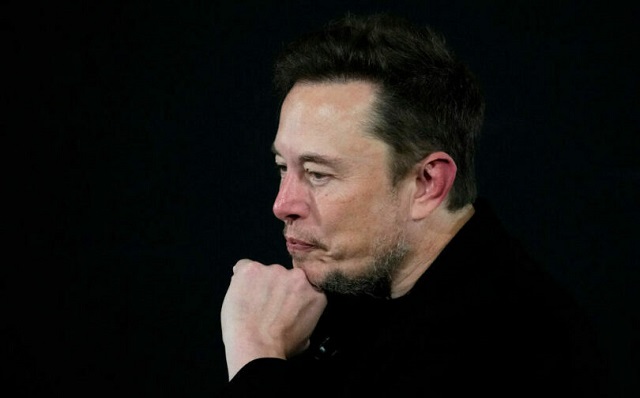
From LifeSiteNews
It literally spits in the face of all Western legal traditions, especially the one about only being punished if you infringed on a law that was valid at the time of committing a crime
Billionaire tech mogul Elon Musk remarked that it is “insane” that the Trudeau government’s proposed “Online Harms” bill would target internet speech retroactively if it becomes law.
“This sounds insane if accurate!” wrote Musk on Tuesday, in reply to an X (formerly Twitter) user named Camus who detailed that Prime Minister Justin Trudeau’s government’s Bill C-63, the Online Harms Act, could see Canadians fined or even jailed for things posted on the internet prior to the bill becoming law.
Camus noted how Bill C-63 could give police “the power to retroactively search the Internet for ‘hate speech’ violations and arrest offenders, even if the offence occurred before the law existed.”
A brief time later, X’s “CommunityNotes” program – a system in which users collectively “fact-check” information shared on the site –confirmed what Camus had written was accurate, quoting a section of the bill’s text.
“Part 3 of Bill C-63, which is still at first reading stage and is not yet law, adds to the Canadian Human Rights Act: ‘a person communicates or causes to be communicated hate speech so long as the hate speech remains public and the person can remove or block access to it,’” CommunityNotes wrote.
Camus observed about Bill C-63 that the “Trudeau regime has introduced an Orwellian new law.”
“This new bill is aimed at safeguarding the masses from so-called ‘hate speech,’” he wrote. “The real shocker in this bill is the alarming retroactive aspect. Essentially, whatever you’ve said in the past can now be weaponized against you by today’s draconian standards.”
Camus observed how historian Dr. Muriel Blaive has weighed in on “this draconian law,” labeling it outright “mad.”
“She points out how it literally spits in the face of all Western legal traditions, especially the one about only being punished if you infringed on a law that was valid at the time of committing a crime,” wrote Camus.
Bill C-63 was introduced by Liberal Minster Attorney General Arif Virani on February 26 and was immediately blasted by constitutional experts as troublesome.
The bill, if passed, will modify existing laws, amend the Criminal Code as well as the Canadian Human Rights Act, in what the Liberals claim will target certain cases of internet content removal, notably those involving child sexual abuse and pornography.
However, the bill also seeks to police “hate” speech online with broad definitions, severe penalties, and dubious tactics.
Trudeau’s new bill a ‘terrible attack’ on speech, Musk warns
On Tuesday, well-known Canadian psychologist Jordan Peterson replied to Musk by saying about Bill C-63, “It’s much much worse than you have been informed: plans to shackle Canadians electronically if accusers fear a ‘hate crime’ might (might) be committed.”
“It’s the most Orwellian piece of legislation ever promoted in the West.”
Musk replied to Peterson by saying Bill C-63 is “[a] terrible attack on the rights of Canadians to speak freely!”
Other notable X users, such as Canadian lawyer David Freiheit, who is known online as Viva Frei, confirmed Musk’s concern that Bill C-63 could go after X users from posts/tweets made long ago.
“It’s pretty close to accurate, Elon. If someone has the ability to delete a ‘hate speech’ tweet / post and does not, and someone else retweets that tweet, it would qualify as ‘publication’ under the law and be sanctionable,” he wrote.
Details of the new legislation to regulate the internet show the bill could lead to more people jailed for life for “hate crimes” or fined $50,000 and jailed for posts that the government defines as “hate speech” based on gender, race, or other categories.
The bill also calls for the creation of a digital safety commission, a digital safety ombudsperson, and a digital safety office.
The Justice Centre for Constitutional Freedoms (JCCF) has said Bill C-63 is “the most serious threat to free expression in Canada in generations. This terrible federal legislation, Bill C -63, would empower the Canadian Human Rights Commission to prosecute Canadians over non-criminal hate speech.”
In a recent podcast, Peterson and Queen’s University law professor Bruce Pardy warned of the “totalitarian” impact Trudeau’s new Online Harms bill will have on Canada.
Peterson observed that the Trudeau government is effectively “establishing an entirely new bureaucracy” with an “unspecified range of power with non-specific purview that purports to protect children from online exploitation” but has the possibility of turning itself into an internet “policing state.”
MAiD
Even Canadian leftists are starting to recognize the ‘dystopian’ nature of MAiD
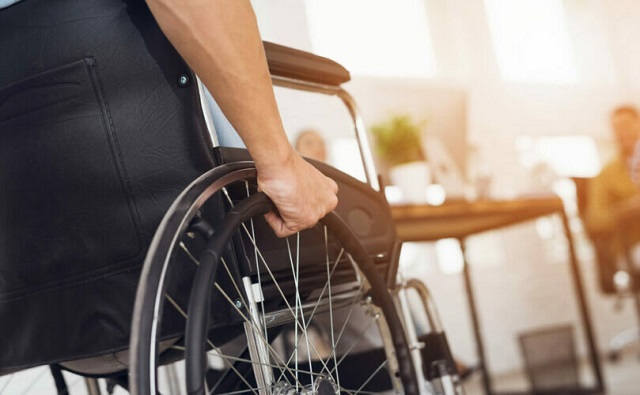
From LifeSiteNews
Euthanasia based on poverty or disability is rarely based on personal choice and autonomy, it is horrifying, it is profane, it is the outcome of a failed social welfare system, and it is indefensible.
David Moscrop wrote an excellent article that was published by Jacobin Magazine on May 2, 2024. Jacobin is an ideologically left magazine, which is concerned about Canada killing people with disabilities and the poor by euthanasia, known as MAiD (Medical Assistance in Dying).
The article begins with this quote:
Canada boasts one of the world’s highest assisted-death rates, supposedly enabling the terminally ill to die with dignity. However, this suicide program increasingly resembles a dystopian replacement for care services, exchanging social welfare for euthanasia.
Moscrop tells the story of Normand Meunier, the quadriplegic man in Québec who died by euthanasia after suffering from horrific neglect. Moscrop writes:
For want of a mattress, a man is dead. That’s the story, in sum, of a quadriplegic man who chose to end his life in January through medically assisted death. Normand Meunier’s story, as reported by the CBC, began with a visit to a Quebec hospital due to a respiratory virus. Meunier subsequently developed a painful bedsore after being left without access to a mattress to accommodate his needs. Thereafter, he applied to Canada’s Medical Assistance in Dying (MAiD) program.
As Rachel Watts writes in her report, Meunier spent ninety-five hours on a stretcher in the emergency room – just hours short of four days. The bedsore he developed ‘eventually worsened to the point where bone and muscle were exposed and visible – making his recovery and prognosis bleak.’ The man who ‘didn’t want to be a burden’ chose to die at home. An internal investigation into the matter is underway.
I find it interesting that the article states that Meunier chose to die by euthanasia when in fact he was put into an untenable situation. Moscrop then reinforces the concerns of the disability community:
Disability and other advocates have been warning us for years that MAiD puts people at risk. They warned that the risk of people choosing death – because it’s easier than fighting to survive in a system that impoverishes people, and disproportionately does so to those who are disabled – is real. Underinvestment in medical care will push people up to and beyond the brink, which means some will choose to die instead of ‘burden’ their loved ones or society at large. They were right.
Moscrop comments on how euthanasia is the outcome of a failed social welfare state:
A libertarian ethos partially underwrote the fact that not many people blinked when MAiD was initially rolled out. Taking a more expansive view of rights, many of those not swayed by rote libertarianism were convinced that concerns over bodily autonomy and compassion were reason enough to adopt MAiD. However, in the absence of a robust welfare state, and in the face of structural poverty and discrimination, particularly toward disabled people, there is no world in which the MAiD program can be understood to be ‘progressive.’
Indeed, last year, Jeremy Appel argued that MAiD was ‘beginning to look like a dystopian end run around the cost of providing social welfare.’ Initially supportive, he changed his mind on MAiD as he considered that the decisions people make are not strictly speaking individual but are instead collectively shaped and sometimes ‘the product of social circumstances, which are outside of their control.’ When we don’t care for one another, what do we end up with?
‘I’ve come to realize,’ wrote Appel, ‘that euthanasia in Canada represents the cynical endgame of social provisioning with the brutal logic of late-stage capitalism – we’ll starve you of the funding you need to live a dignified life [. . .] and if you don’t like it, why don’t you just kill yourself?’
READ: Young, healthy women being euthanized in the Netherlands should be a warning for Canada
Moscrop then comments on that euthanasia for psychiatric reasons has been delayed in Canada based on the lack of mental health care. He refers to the reality as grotesque and writes that this is the stuff of nightmarish science fiction. Moscrop comments on the broken social welfare system in Canada.
In Canada’s most populous province, Ontario, a recipient of disability support receives about $1,300 a month – a pittance they’re meant to stretch to cover food, shelter, and other basic needs. Ontario Works – the province’s welfare program – pays a current maximum of $733 a month. Meanwhile, rental costs for a one bedroom apartment routinely push toward an average of $2,000 a month in many cities. In April, in Toronto, a one bedroom apartment averaged almost $2,500 a month.
Moscrop challenges a statement by euthanasia activists James Downer and Susan MacDonald who stated:
Despite fears that availability of MAiD for people with terminal illness would lead to requests for MAiD driven by socioeconomic deprivation or poor service availability (e.g., palliative care), available evidence consistently indicates that MAiD is most commonly received by people of high socioeconomic status and lower support needs, and those with high involvement of palliative care.
Moscrop replies:
By their own admission, the data on this matter is imperfect. But even if it were, the fact that ‘most’ patients who choose MAiD are better off socioeconomically is beside the point. Some are not – and those ‘some’ are important. That includes a man living with Amyotrophic Lateral Sclerosis who, in 2019, chose medically assisted death because he couldn’t find adequate medical care that would also allow him to be with his son. It also includes a man whose application listed only ‘hearing loss,’ and whose brother says he was ‘basically put to death.’ This story came a year after experts raised the concern that the country’s MAiD regime was in violation of the Universal Declaration of Human Rights.
In 2022, Global News said the quiet part out loud: poverty is driving disabled Canadians to consider MAiD. Those ‘some’ who are driven to assisted death because of poverty or an inability to access adequate care deserve to live with dignity and with the resources they need to live as they wish. They should never, ever feel the pressure to choose to die because our social welfare institutions are starved and our health care system has been vandalized through years of austerity and poor management.
Moscrop then states that Canada has the resources to prevent endemic poverty and provide adequate care, that poor people being euthanized by the state is profane.
Moscrop then refers to a recent article by professor Trudo Lemmens who is a critic of Canada’s euthanasia law.
In a February piece for the Globe and Mail, University of Toronto law professor Trudo Lemmens wrote, ‘The results of our MAiD regime’s promotion of access to death as a benefit, and the trivialization of death as a harm to be protected against, are increasingly clear.’ In critiquing MAiD’s second track, which allows physician-assisted death for those who do not face ‘a reasonably foreseeable death,’ Lemmens points out that within two years of its adoption, ‘“track two”’ MAiD providers had ended already the lives of close to seven hundred disabled people, most of whom likely had years of life left.’
In raising concerns about expanding MAiD to cover mental illness, Lemmens added that ‘there are growing concerns that inadequate social and mental health care, and a failure to provide housing supports, push people to request MAiD,’ noting that ‘[a]dding mental illness as a basis for MAiD will only increase the number of people exposed to higher risks of premature death.’
Moscrop continues by referring to a commentary from disability leader Gabrielle Peters.
In 2021, Gabrielle Peters warned in Maclean’s that extending MAiD to cover those who weren’t facing an immediately foreseeable death was ‘dangerous, unsettling and deeply flawed.’ She traced the various ways in which a broader MAiD law could lead to people choosing to die in the face of austerity, adding an intersectional lens that is often missing from our discussions and debates over the issue.
She warned that we were failing to consider ‘how poverty and racism intersect with disability to create greater risk of harm, more institutional bias and barriers, additional layers of othering and dehumanization, and fewer resources for addressing any of these.’ And now here we are. We should have listened more carefully.
Moscrop ends his article by suggesting that euthanasia may be OK based on personal choice but it is indefensible when it is based on poverty.
While MAiD may be defensible as a means for individuals to exercise personal choice in how they live and how they die when facing illness and pain, it is plainly indefensible when state-induced austerity and mismanagement leads to people choosing to end their lives that have been made unnecessarily miserable. In short, we are killing people for being poor and disabled, which is horrifying.
It thus falls to proponents of MAiD to show how such deaths can be avoided, just as it falls to policymakers to build or rebuild institutions that ensure no one ever opts to end their life for lack of resources or support, which we could provide in abundance if we choose to.
I agree with most of Moscrop’s comments but I disagree with his statement that euthanasia is possibly defensible as a means of individuals exercising personal choice. Even though people with disabilities experience social devaluation in Canada, they may be still exercising personal choice when they ask to be killed.
The problem with modern writers is that they miss the fact that euthanasia is about killing people. Even if Canada had a greater level of equality, there would be people who ask to be killed based on their poverty or their concerns about homelessness.
The real concern is that Canada has given medical professionals the right in law to kill their patients. This is about people killing people.
Nonetheless Moscrop is right that euthanasia based on poverty or disability is rarely based on personal choice and autonomy, it is horrifying, it is profane, it is the outcome of a failed social welfare system, and it is indefensible.
Reprinted with permission from the Euthanasia Prevention Coalition.
-
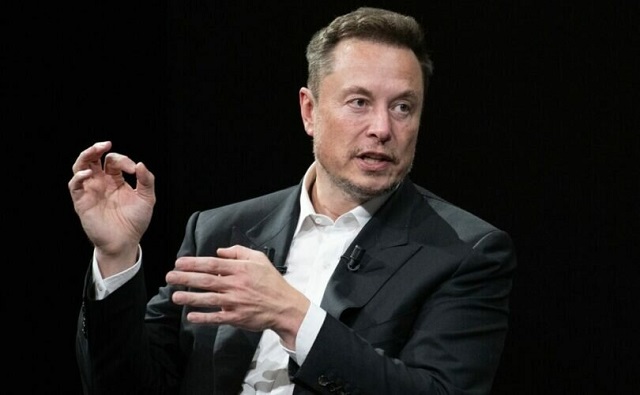
 COVID-192 days ago
COVID-192 days agoElon Musk’s X will help fund COVID shot critic’s ongoing legal battle against Canadian university
-
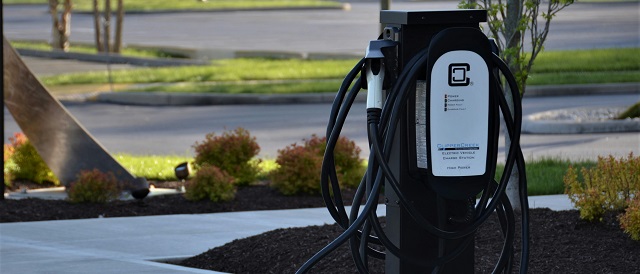
 Automotive2 days ago
Automotive2 days agoNew Analysis Shows Just How Bad Electric Trucks Are For Business
-
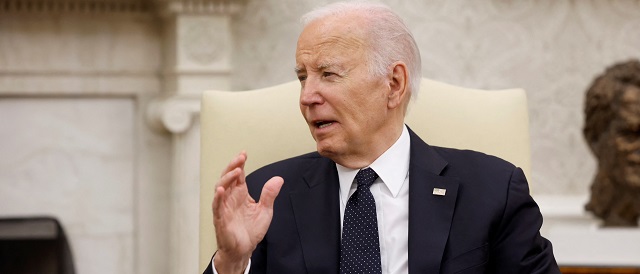
 Censorship Industrial Complex2 days ago
Censorship Industrial Complex2 days agoBiden Agencies Have Resumed Censorship Collaboration With Big Tech, Dem Senate Intel Chair Says
-

 COVID-191 day ago
COVID-191 day agoAstraZeneca withdraws COVID vaccines worldwide amid lawsuits alleging severe harm
-

 Education2 days ago
Education2 days agoSchools shouldn’t sacrifice student performance to vague notions of ‘equity’
-
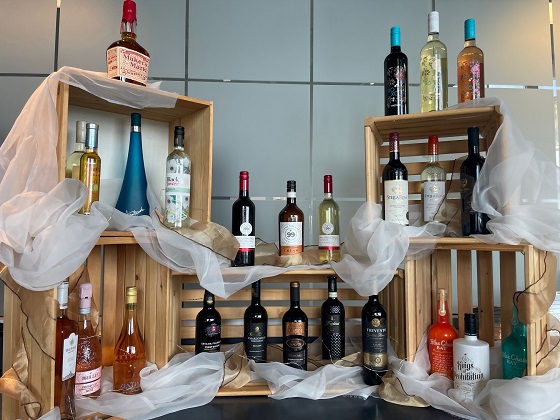
 Alberta Sports Hall of Fame and Museum2 days ago
Alberta Sports Hall of Fame and Museum2 days agoTHE HALFTIME REPORT News from the Alberta Sports Hall of Fame
-
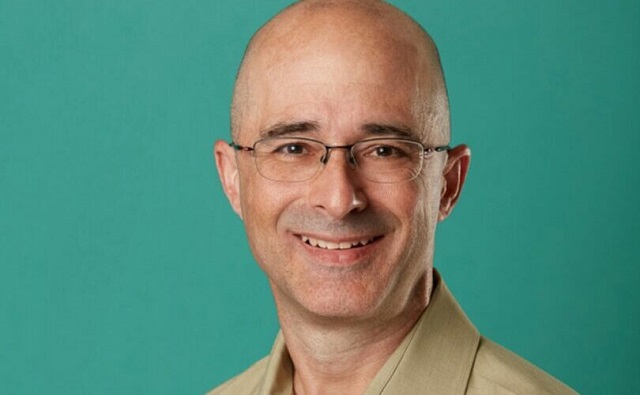
 COVID-192 days ago
COVID-192 days agoQuebec microbiology professor fired for his public opposition to COVID shots
-
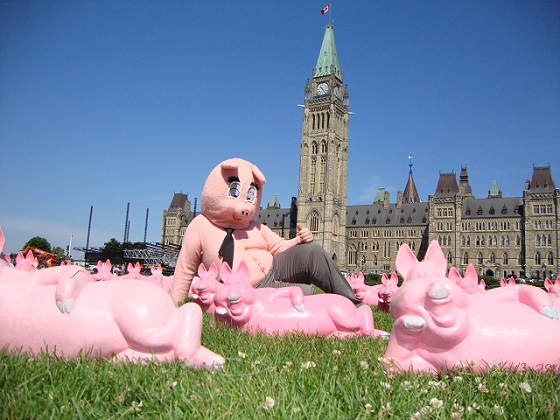
 National2 days ago
National2 days agoTaxpayers Federation presents Teddy Waste Awards for worst government waste

